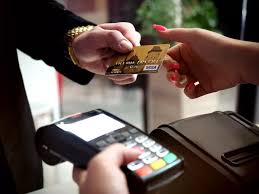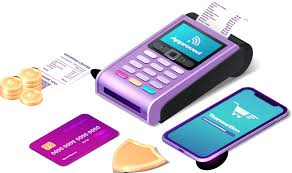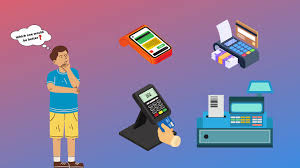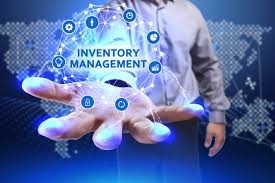Point of sale merchant service
Posted on October 1st, 2023
Streamlining Business Transactions with Point of Sale Merchant Services
Businesses need quick and secure ways to process payments in the fast-paced world of commerce. Point of Sale merchant services have changed the game and the way businesses conduct business. POS merchant services provide a number of advantages that can improve your business operations and customer experience, regardless of whether you operate a physical location, an online store, or a mobile enterprise.
What do point of sale merchant Services do?
Point of Sale merchant services devices are flexible technologies that let companies handle payments quickly and safely. They control transactions, handle numerous payment methods, monitor inventory, generate thorough sales reports, improve security, and provide CRM features. These services help firms in a variety of industries by streamlining processes, enhancing data insights, and enhancing the customer experience.

Different Types of Point of Sale Merchant Services
Point of Sale merchant services come in various forms, each tailored to the unique needs of businesses across different industries. Here are some of the different types of POS merchant services available:

Traditional POS System
On-premises POS: These are the conventional, hardware-based platforms used by businesses to acquire and control their POS hardware and software. They offer a wide range of customization choices and strong functionality, but they also need ongoing maintenance and upfront investments.
Mobile POS Systems:
Tablet-based POS: Tablets or smartphones are widely used in business settings, along with point-of-sale accessories like card readers and receipt printers. These systems are well suited for restaurants, food trucks, pop-up shops, and small businesses because they are relatively customizable.
Cloud-Based POS Systems:
Software as a Service (SaaS) POS: Cloud-based systems keep data off-site and make it available online. They are preferred by small enterprises and franchises because they offer scalability, automatic upgrades, and remote access.

E-commerce Payment Solutions:
Online Payment Gateways: Through the secure processing of credit card payments on e-commerce websites, these services help online transactions. PayPal, Stripe, and Square Online are a few examples.
Shopping Cart Integration: Since e-commerce platforms include integrated POS features, companies can control both online and offline sales from a single platform.
Mobile Payment Services:
Mobile Wallets: Customers can use platforms like Apple Pay, Google Pay, and Samsung Pay, which commonly make use of NFC (Near Field Communication) technology, to make purchases using their smartphones or smartwatches.
Mobile Card Readers: Small businesses can accept credit card payments by attaching a card reader to a mobile device, like those provided by Square, PayPal Here, or Shopify.
Restaurant POS Systems:
Specialized Restaurant POS: These systems are designed specifically to meet the requirements of pubs, cafes, and restaurants. They provide options like managing tables, customizing the menu, and publishing kitchen orders.
Retail POS Systems:
Retail Management POS: These systems, which are intended for retail organizations, are primarily concerned with inventory control, barcode scanning, and customer relationship management (CRM).
Hospitality POS Systems:
Hotel and Hospitality POS: For hotels, resorts, and other hospitality-related enterprises, these solutions are perfect. They come with functions for hotel reservations, visitor check-ins, and point-of-sale transactions at eateries and gift stores.

Enterprise POS Solutions:
Large-Scale Retail POS: To manage several locations, complicated inventory, and omnichannel sales, enterprise-level enterprises frequently need highly customized and integrated POS solutions.
Self-Service Kiosks:
Kiosk-based POS: These self-service kiosks, which are frequently found at fast food establishments, movie theaters, and supermarkets, let customers place orders and settle their bills on their own.
MPOS (Mobile Point of Sale) Systems:
Handheld POS Devices: MPOS systems, which are frequently utilized at stadiums, outdoor markets, and event sites, use portable devices like smartphones or handheld terminals for payments.
In-App Payments:
Integrated Payments: Customers can make purchases inside of mobile apps by using in-app payment processing, which is available in some software programs.

Contactless and EMV Payments:
Contactless Payment Terminals: These point-of-sale systems allow card or mobile wallet tap-and-go payments.
EMV (Europay, Mastercard, and Visa) Terminals: Through the processing of credit and debit cards with embedded chips, these terminals offer increased security.
When choosing the kind of point-of-sale merchant services that best match their operations, businesses should carefully evaluate their unique needs and industry standards. Making the right decision can greatly enhance productivity, customer satisfaction, and total profitability.
Key Features and Benefits:
Efficiency: Simplifying the payment process is one of the main advantages of POS merchant services. Payments may be made easily and swiftly by customers, speeding up checkout and improving their overall buying experience. This effectiveness carries over to the back end of the company, where transactions are digitally recorded to reduce the possibility of human error.
Multiple Payment Options: Businesses can accept numerous payment methods, such as conventional credit and debit cards, EMV chip cards, contactless payments, and mobile wallet apps, thanks to POS merchant services. This adaptability satisfies the wide range of demands of contemporary consumers.
Enhanced Security: These services place a high priority on security, using encryption and tokenization to safeguard private consumer information. This guarantees the security of transactions and aids in fostering client confidence among firms.
Inventory Management: Numerous POS systems have inventory management functions that enable firms to monitor stock levels in real time. This reduces overselling and makes timely restocking possible, increasing operational effectiveness overall.

Analytics and Reporting: POS systems produce insightful analytics and data on consumer behavior, market trends, and inventory turnover. Making well-informed business decisions, like changing prices or adding new product lines, is possible with the help of this information.
Customer Relationship Management (CRM): Businesses are able to track client preferences and purchase history thanks to the CRM features included in some POS systems. This promotes consumer loyalty and the creation of personalized marketing strategies.
Scalability: Point sale merchant services can change to meet your company’s changing demands. These services can be scaled up or down as needed for small startups as well as huge corporations.
In conclusion
Point of sale merchant services are essential to contemporary business. They make it possible for companies of all sizes to run their operations more effectively, improve client experiences, and expedite transactions. Technology has enabled POS systems to advance beyond being restricted to basic cash registers and now include a variety of functions like integrated payment processing, analytics, and inventory management.